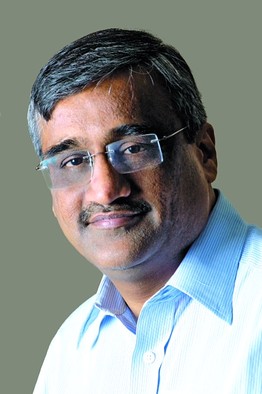Kishore Biyani on Retail in India
The Wall Street Journal – Sept 19, 2013
Kishore Biyani is chief executive of Future Group, which runs businesses such as Big Bazaar, Food Bazaar and Future Retail, formerly known as Pantaloon Retail.
He spoke with The Wall Street Journal’s India Real Time about the retail sector, foreign direct investment and the state of the economy. Edited excerpts:
The Wall Street Journal: What is your view on the Indian economy?
Kishore Biyani: The economic scenario doesn’t look optimistic. Entrepreneurship has been stifled and delays in project approvals have added to issues. In addition, macroeconomic uncertainties are not helping. However, at the ground level, I am positive about the attitudes of aspirational people. In India, the ground level drive and desire of people is good. We need to encourage entrepreneurship and support India’s grassroots entrepreneurs engaged in providing value-added products and services, rather than create impediments for them.
WSJ: Why has the much-hyped FDI in retail policy encountered problems?
Mr. Biyani: Overall, I think we in the retail industry failed to make the government understand the nature and benefits of modern retailing and distribution as a business in India. You never hear terms like ‘multi-brand retailing’ and ‘single-brand retailing’ in any country except ours and it doesn’t make sense to me. In addition, the nature of the industry needs to be understood across the supply chain, including the sourcing. To ask companies to source 30% from local manufacturers isn’t practical, especially in sectors such as electronics, furniture and homeware, where our manufacturing footprint is marginal.
WSJ: Do you have any joint ventures in the pipeline?
Mr. Biyani: There is not much.
WSJ: Wal-Mart appears to be wary of entering India. Do you see the company as a competitor or a collaborator?
Mr. Biyani: Everyone has their unique model. It would help create demand in the country initially with multinationals such as Wal-Mart. Future competition can be determined only when the sector evolves. For the past one to one-and-a-half years, there has been barely any activity in the retail sector.
I have always welcomed substantial foreign investment in the sector. My only issue is that it has to be substantial enough to benefit the overall market.
WSJ: Parallels have been drawn between now and the 1991 crisis. Do you think the economic situations are similar?
Mr. Biyani: I don’t think so. It is the prolonged nature of this slowdown that is making it so painful. It is affecting everyone across the board.
WSJ: How can the economy be revived?
Mr. Biyani: This is for the concerned policymakers to decide. I believe that we fundamentally need to believe in India. We have minerals, resources, people and intelligence in abundance, yet we rarely use them to our benefit. We always depend on concepts and ideas from abroad. The CAD [current account deficit] can be controlled by good policy measures, which include working on a policy on import substitution, boosting manufacturing performance and creating the right environment for entrepreneurial growth.
WSJ: Your company has a chief belief officer. Could you elaborate on this role?
Mr. Biyani: Yes, I believe that belief leads to behavior which in turn leads to business results. This approach is important and is integrated within the organization. It boosts the morale of employees and provides purpose to their time here. If we do not have a grasp of our identity, belief will be irrelevant. The most important thing is happiness and that comes from belief in us.
This interview can also be viewed at http://blogs.wsj.com/indiarealtime/2013/09/19/qa-kishore-biyani-on-retail-in-india/

